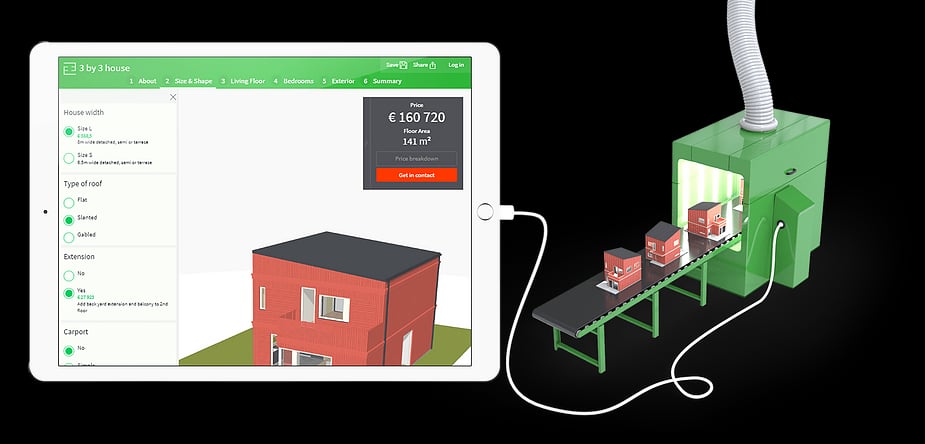Massively local housing

The housing crisis seems to be the status quo state almost everywhere in the world. Despite all the fuss the crisis seems to be everlasting. We need houses; we need it delivered reliably, fast, cheap, to the right location and on-demand. Is this really a too difficult a puzzle to solve? What stops us doing it?
We can build it off-site faster and possibly cheaper than ever before. Modular houses can be delivered to the location and - as some recent examples suggest (see examples below) - also on demand. So it is not the production that is really a culprit. It seems that it is much to do about the availability of land, and more particularly about planning systems that tend to be sluggish releasing the land for development. Changing a planning system deeply is a tough nut as it is integrated with so many aspects of our everyday lives. Literally everyone is involved in a one way or another and should have a say.
Instead, we could create tools and delivery chains that speed up the planning and the following construction processes. One of such mechanisms is to mass-localize factory built houses. It would require good modular designs that allow different ways of putting houses together. We need new modular house patterns; we need modern day Pattern book designs.
https://www.housebyurbansplash.co.uk/
The idea of a pattern is very common amongst software developers. A few of us know that it was actually borrowed from the field of architecture (see Christopher Alexander's, Pattern Language). In order to be successful and scalable housing patterns need to be repeatable in many different locations. The design needs to adjust to the local physical environment and climate, but also to the cultural and social context. Pattern book houses need to be massively localised.
We are still in the beginning of the journey. It has taken Creatomus, Welement and Pluss Architects about 1 year to create a simple pattern book house design and it will probably take another one or two before we can really start seeing the patterns emerge. But we know that this is the future and seek contact with anyone that think alike.